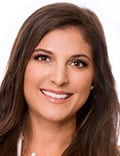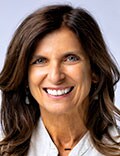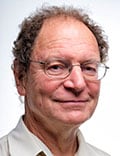Sometimes the day-in and day-out of running a private practice, taking calls at all hours, or dealing with insurers can be too much.
This is one of the revelations in Medscape’s 2023 Physician Lifestyle & Happiness Report, which showed that physicians were happier before the pandemic and that 53% of those surveyed would be okay earning less pay if it meant they could have better work-life balance. In addition, the American Medical Association reports that 1 in 5 physicians plan on leaving their practices within 2 years.
If you’re worried that changing careers might mean a dip in compensation, read on to learn more about four physicians who made a change and are making more money — and feel more in control of their work-life balance.
A Career Add-On
While Allison Anderson, MD, still practices anesthesiology in Redlands, California, she recently pivoted from a shareholder-owned practice to join a large corporate anesthesia practice, which gives her time and space to expand into a coaching practice, which fulfills her.

Dr Allison Anderson
“I went from living in my hometown and working at a hospital where I knew everyone to living in a different state and essentially starting over in terms of my relationships with colleagues,” says Anderson, a board-certified cardiothoracic anesthesiologist and certified life coach who specializes in coaching married couples.
“I sometimes miss the close-knit group I had worked with for so long, but I love my coaching business and the way I can truly help people change their lives.”
Anderson adds that there are many overlapping qualities between her work as a physician and her calling as a coach.
“Coaching has the heart of service that drew me to medicine, but without all of the red tape,” she says. “It’s the perfect extension of what I set out to do all those years ago when I decided to become a physician — serve those around me.”
When asked for career advice for physicians looking to become more fulfilled, Anderson says, you get to decide what works for you. For example, do you want to go part-time, work reduced hours, or set up your practice differently? “Just because you’ve been at a certain hospital for a long time and have seniority, it doesn’t mean you can’t decide to make a change.”
There are many possibilities within and outside of medicine that you can choose, and you don’t have to settle for less. “You made it all the way through medical school and residency. If you can do that, you can do anything,” Anderson says.
Reimagine Your Practice
Dana Canuso, DPM, a podiatric surgeon in Marlton, New Jersey, says she doesn’t miss her old life. After practicing for 5 years, she started an antifungal product line. Then, when the pandemic began, she switched gears again and started a house call business in which she hired other podiatrists to make house calls.

Dr Dana Canuso
“I feel like I’m helping so many more people than I could have in my practice when I could see 30 people max per day,” says Canuso, the mom of two kids, aged 9 and 14. “Now I have doctors seeing way more patients than I ever could and I create products that are helping people, too.”
Canuso says it’s scary taking a step away from medicine. “To do what I’m doing, you have to have business acumen, but it’s worth it to achieve a feeling of balance,” she says. “I’m glad I had my medical training — it helps with everything I do today, and that training is never going to go to waste for any doctor who wants to switch gears.”
Go in a Different Direction
When Annie Fenn, MD, watched her mother go through an Alzheimer’s diagnosis, she decided to walk away from her work as an ob/gyn turned culinary instructor to become an expert on the scientific study of nutrition and dementia.

Dr Annie Fenn
“Even though I loved my practice, I was itching to use a different part of my brain,” says Fenn, who is based in Jackson Hole, Wyoming. “I was worn down by the hours, lack of sleep, and lack of a creative outlet.”
Always a passionate home cook, Fenn dreamed of attending culinary school. So, a few months after retiring from her clinical practice, she attended culinary school and then became a culinary instructor at her local community college.
“Then, when my mother was diagnosed, I decided to combine my medical background with my new culinary skills to get the word out that eating a certain way can reduce Alzheimer’s risk,” she says. She is now the founder of Brain Health Kitchen, a cooking school focused exclusively on evidence-based lifestyle factors to prevent Alzheimer’s. She is also the author of The Brain Health Kitchen: Preventing Alzheimer’s Through Food.
She now hosts brain health retreats and frequently travels as a guest chef at wellness centers and cooking schools.
“More than 1000 students have attended my cooking classes, and many more have attended my online webinars,” she says. “Students tell me the classes have changed their lives. Many have had family members with Alzheimer’s, and now, instead of fearing cognitive decline, they have specific tools to significantly reduce their risk.”
Fenn acknowledges that it was nerve wracking to give up her steady income as a busy, well-established ob/gyn. “But once my mother was diagnosed with Alzheimer’s, I became completely galvanized by my mission to help others reduce their risk with food and lifestyle,” she says. “This passion for giving back has been the driving force behind my business, and it can be the same for any other doctor who wants to make a pivot.”
Second and Third Acts
Switching careers came easily to Turner Osler, MD. The University of Vermont physician started his career as an academic trauma surgeon, a career that blended a mix of surgery, research, and teaching. However, it was only when he got a master’s degree in biostatistics and shifted to conducting epidemiologic research full time that his third act came to him.

Dr Turner Osler
As it happened, the life of an epidemiologist required sitting at a desk far more than he was accustomed to, and it soon became apparent that he needed a better sitting solution. When he didn’t find the chair of his dreams, he came up with one.
“Our team of MDs, designers, and bodywork experts created not just a new chair but an entirely new way to sit that worked with the body rather than against it,” he says. “Looking back, ‘chair designer’ isn’t at all the third career I would have predicted for myself. My slide into entrepreneurship was unexpected, a passion project that got out of hand and turned into a startup.”
Second acts after a medical career can be difficult because medicine is a demanding career that doesn’t easily accommodate other pursuits, says Osler. “That’s why I suggest keeping up with interests and developing new ones whenever the opportunity arises.
“It’s hard to guess what pursuit will turn into a second act, so the more interests you have, the more opportunities you’ll find. I always say that passion is something that you have to bring with you to the table. Otherwise, you’ll wind up with just another job.”
Lambeth Hochwald is a New York City–based journalist who covers health, relationships, trends, and issues of importance to women. She’s also a longtime professor at NYU’s Arthur L. Carter Journalism Institute.
For more news, follow Medscape on Facebook, Twitter, Instagram, and YouTube.
Source: Read Full Article
